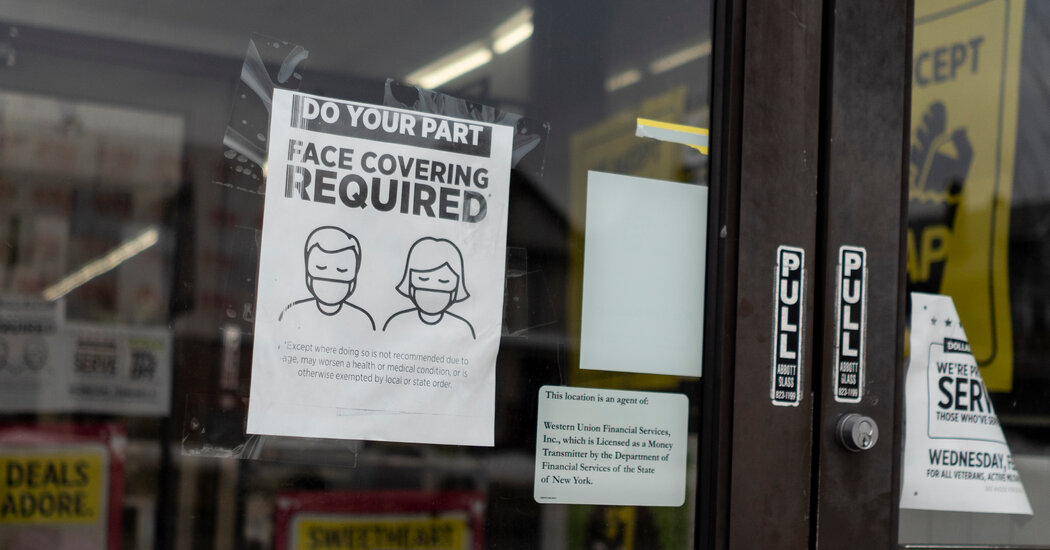The Biden administration announced on Thursday it was taking several steps to make masks and coronavirus tests more accessible to people with disabilities, following criticism from the disability community that the country’s top leadership has been slow to act to protect the country’s most vulnerable.
Dr. Cameron Webb, the senior policy adviser for equity on the White House Covid-19 Response Team, said that the administration has been deeply engaged with advocates for the disabled in recent months to create the plan as a sign of its commitment to do better by them. “We hear you, we see you,” he said.
Over the course of the pandemic, people with disabilities have suffered a disproportionate number of deaths and many have been unable to safely resume normal activities. Some children who have compromised immune systems or other medical issues that put them at high risk have had to continue remote learning even as their peers return to class.
Blind people or those with limited mobility have often forgone Covid-19 testing because they either cannot drive to a testing site or cannot perform at-home tests. People with intellectual disabilities have sometimes had trouble understanding written Covid-19 guidance.
As part of the Biden administration’s new initiative, the Department of Health and Human Services will be expanding its disability information hotline to help people with ordering tests, understanding test instructions or finding alternatives to at-home testing, officials said.
The administration also plans to improve at-home tests to make them more accessible and user-friendly but did not provide specifics, although it did say that the National Institutes of Health will consult with communities in need of those tests to help inform the modification and development of new tests and modes of instruction.
At the same time, the administration has signaled that it will prioritize buying at-home tests from manufacturers that focus on these goals, officials said.
Other measures outlined by the White House include distributing masks to people who cannot leave their homes so that they can receive visits from caregivers, giving schools guidance on protecting high-risk children in schools, and providing Covid-19 guidance in alternative formats like Braille, American Sign Language and simplified text that can be understood by those with intellectual disabilities.
Disability advocates praised the plan but expressed disappointment about its limited scope.
Mia Ives-Rublee, director of the Disability Justice Initiative at the Center for American Progress, said that the guidance doesn’t meaningfully address concerns of high-risk or immunocompromised people, many of whom are living in isolation and fear as mask mandates disappear around the country. She said many of the steps were the bare minimum and should have been taken months ago.
“I’m glad that they’re trying to react to our demands, but the unfortunate thing is some of it is just so little, too late,” she said.
Further steps she said disability organizations would like to see the administration take are to put out more research on Long Covid, more guidance on workplace accommodations for people who are immunocompromised or have long Covid, and increasing the supply of treatments.
Tory Cross, an official at the health care advocacy organization Be a Hero, said disability advocates also want to see indoor mask mandates remain in place, at least until vaccination rates are higher.
“The pandemic will not end until the world is vaccinated and until disabled, chronically ill, and high-risk people are able to participate in society as fully as those without disabilities,” she said.
Kimberly Knackstedt, director of disability policy for the Domestic Policy Council at the White House, said that the White House plan was only a first step. She said that the administration will be continuing to work on more initiatives and actions.
“Everyone’s needs are going to be a little bit different,” she said, adding, “We do hope that this is a step in the right direction.”




























